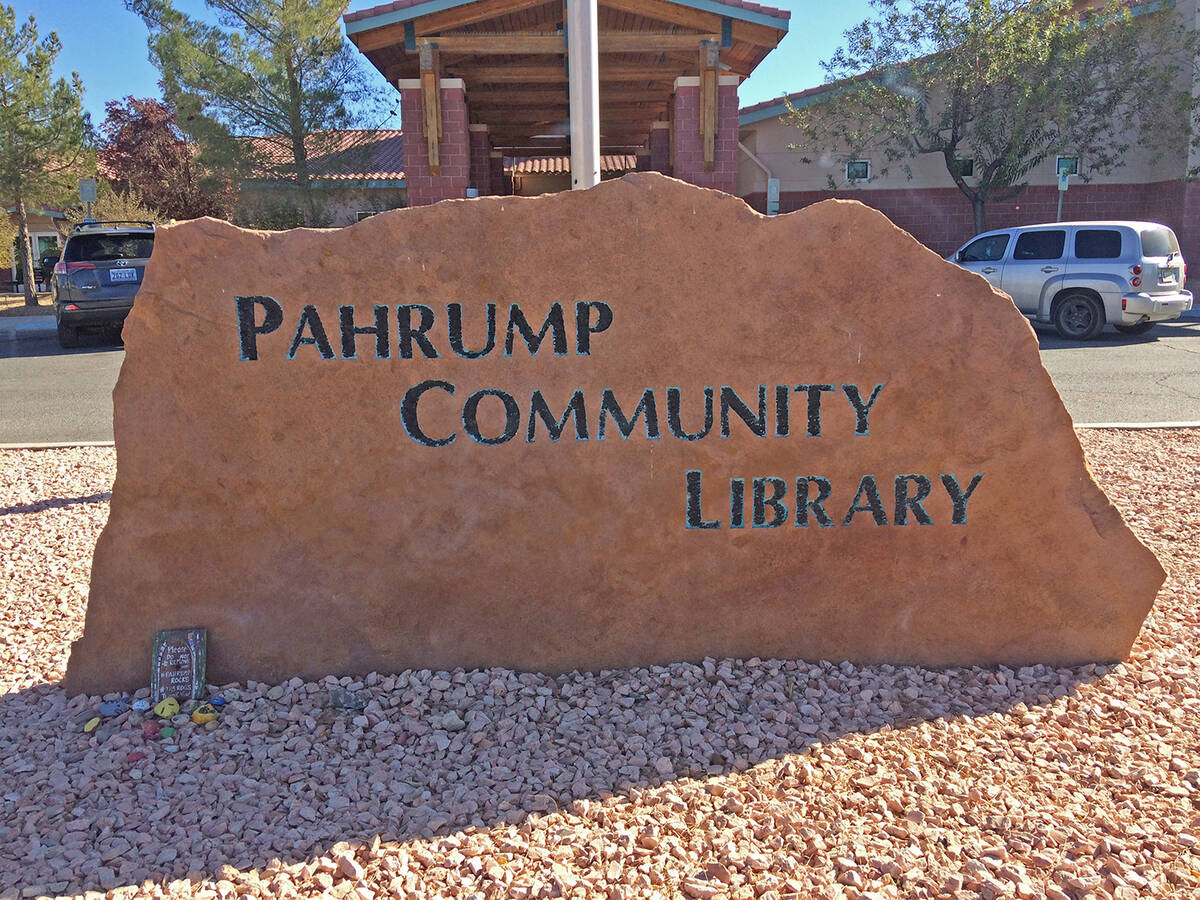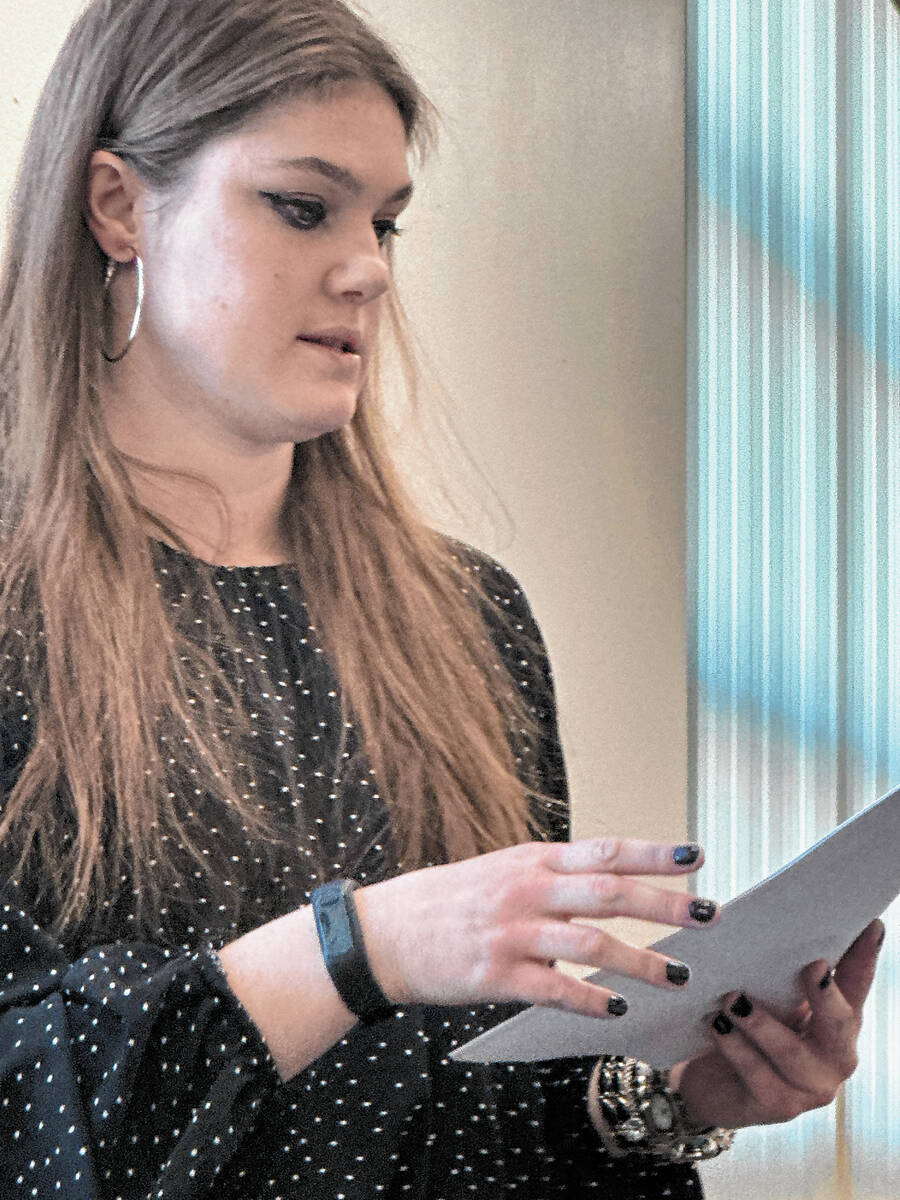Pahrump library trustees: LGBTQ books need scrutiny for kids’ sake
Pahrump Community Library trustees will develop a plan to relocate “unsuitable” children’s books to elsewhere in the library after voting 5-0 on Monday to craft a review system of questionable materials that’s likely to include a number of LGBTQ-affirming titles.
Details of the plan are still in the works.
The move comes after board chair John Shewalter said he received an email criticizing a display of LGBTQ+ materials in the library’s youth section that included the book “Beyond Magenta.”
Its author, Susan Kuklin, interviewed six transgender or gender-neutral young adults and detailed their struggles with identity and transitioning for the book that’s often categorized as a young adult’s non-fiction title.
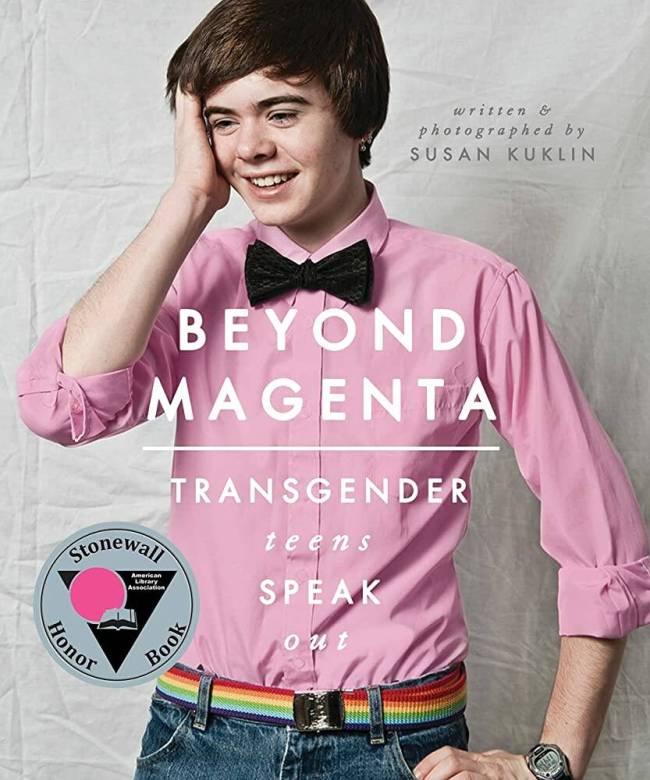
The book isn’t appropriate for young readers, according to the complaint received by Shewalter, because it contains “a sex act by a 6-year-old” and includes the “sexual experience of a teenager.”
“Beyond Magenta normalizes abuse and even pedophilia,” the complaint says. “It is pornography no matter how ‘gently’ it’s introduced.”
The anonymous writer of the complaint called for library trustees to fire director Vanja Anderson for “allowing the sexual grooming of the children in our community and not doing her job.”
“Equating these very genuine concerns regarding the sexualization of children and homosexuality is in my view very damaging,” the complaint said in part.
It’s unclear who wrote it because Shewalter redacted the name and email address of its sender before circulating a printed copy of the complaint on Monday at a meeting with trustees. The complaint was apparently emailed to Shewalter on Sept. 27, 2022 and also takes aim at “Too Bright to See” by Kyle Lukoff and and “Alice Austen Lived Here” by Alex Gino.
Both books feature LGBTQ+ themes, as well as non-binary, transgender and queer characters.
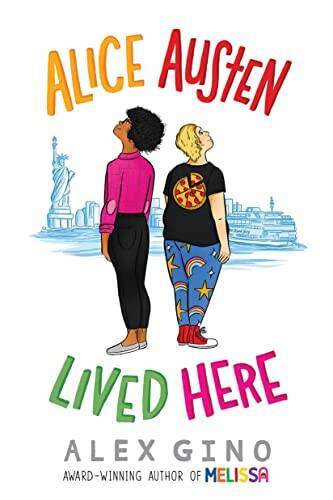
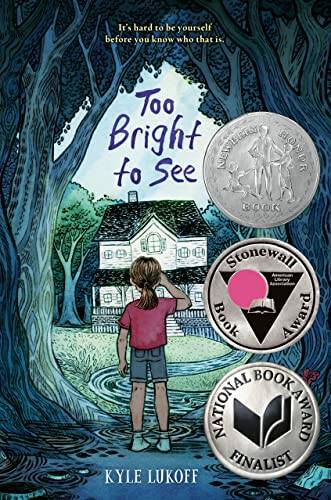
Trustees react
Shewalter said he reviewed the material after receiving the complaint and what he found was “pretty alarming language.”
He said he wouldn’t want his 8-year-old granddaughter to read the books or “other vile literature.”
The library currently maintains a policy that youth may solely check out books and materials with permission from a parent or guardian, but trustees say that some material in the youth wing might need to be relocated to another part of the library to better alert adults to the mature themes they contain.
“By providing children these materials, without providing guidance, you’re asking for it,” Shewalter said, citing the alarming suicide rates of LGBTQ youth.
Many LGBTQ books contain “psychological” and “psychiatric” themes that some youth can’t handle, Shewalter said.
“It’s dangerous to be playing around in the mental health realm,” he said.
Shewalter said it could be a “liability” if youth harm themselves after reading LGBTQ+ material provided by the library.
“They don’t call it gender dysphoria for fun,” he said.
The American Psychiatric Association does not recognize homosexuality as a disorder. Being transgender is also not a mental illness, however, trans people do face unique challenges, including gender dysphoria and discrimination, which often affects their mental health.
Some say that’s the very reason why queer, trans and questioning youth need access to LGBTQ+ materials that reference and affirm their unique struggles.
But trustees say that’s not in the best interest of the youth they’re trying to protect.
“It’s our responsibility to protect the children,” library trustee Brian Shoemake said, noting that youth often gravitate to controversial books they’re “not supposed to read.”
“Just because [they’re] curious, doesn’t mean we should be putting something in their hands that’s against their best interest,” he said.
The board has “standards,” Shoemake added, noting that trustees weren’t there to “sexualize children for our own gratification.”
“We don’t buy into the political correctness the rest of the country might be falling under,” he said. “This is the Pahrump Library… By god, we’ll make policy to reflect the community where we reside.”
Librarian reacts
Alysha Wogee, the Pahrump children’s librarian told trustees on Monday that she was unaware there had been issues with books in her department.
“We have different cultures, we have different ideals in all of our households,” she said, noting the diversity of the library’s youth collection which reflects its patrons.
Wogee works closely with children and their families, and even operates a five-member teen advisory board that gives youth some input into library operations. About 1,617 youth materials were used at the library in March alone, according to library reports.
Wogee said she remains neutral on library board policies and will “listen to all sides” of the debate, but told trustees on Monday that any plan to recatalog youth books should detail specifics, including who objects to the content and why, as well as how any questionable material will be reviewed.
“As a community, we decide what should be in our library and what should not,” she said. “I do feel our collection is a good collection, but if there are issues, I do want to hear from people on what needs to be done.”
Public reacts
Reaching a consensus from stakeholders in Pahrump seems unlikely after hearing mixed public opinion on the plan.
Nichole Walters told trustees on Monday that she stopped bringing her 5-year-old son to the Pahrump library because of some titles in the children’s collection. She acknowledged that it should be up to a child’s parents to determine what material they read, but said “a lot of parents make questionable decisions.”
“It is my job as a parent to protect my child and allow them to have access to only what I want them to have access to,” Walter said.
Kelly Green, a retired school librarian and member of the American Library Association, offered a solution for how parents can deal with “questionable” content.
“If you check out a book and you think it is inappropriate for a child, close it, bring it back, and choose something else,” she said. “ The library is public and takes money from everyone with diverse points of view. By removing books from certain sections of the library, you’re taking that choice away from other parents.”
Diane Davis says young children are “very impressionable” and can be influenced by what they read.
When she was 7, the self-described “tomboy” says she “didn’t know the difference between boys and girls.”
Davis said she used to “pray that she’d wake up as a boy” back then, after reading books about jobs that were more suitable for men than women. Attitudes about gender roles may have evolved since then, but Davis said books that affirm LGBTQ themes still confuse young children.
“Children that age don’t know what they really want, or [what they] really are,” she said. “Thank god I don’t live [as a child] in this day and age because they’d be taking me to be a transgender [sic].”
Chelsea Fischer told trustees that some books just aren’t suitable for children, including one of the most banned books from libraries nationwide, “Gender Queer: A Memoir” by Maia Kobabe.
“It has comments that depict sexual acts in this book which would violate child porn laws,” she said.
Fischer cited another queer memoir-manifesto, “All Boys Aren’t Blue,” by journalist and activist George M. Johnson.
It’s a book that’s often cataloged in the young adult non-fiction section of libraries and one that frequently makes the list of most banned books.
“I feel uncomfortable reading it out loud,” Fischer said. “It’s very graphic and fits the definition of pornography.”
Comics, illustrations and other material that could be considered obscene “should not even be allowed to be read in the library,” she said.
“I don’t want to read in the library around people who might be reading something that might arouse them,” Fischer said.
But one opponent of the plan, Thomas Rasmussenf, told trustees on Monday that “not all of us in this community are from the same mind.”
Rasmussenf has worked as a substitute teacher in Nye County schools for the past six years and reminded trustees that “kids come in all different shapes, sizes and dispositions.”
“There are gay kids – they talk about it – and those kids should be represented,” Rasmussenf said. “This is a public library.”
Removing queer books because some find them inappropriate is “sending a message” to LGBT kids and those who are questioning their identities.
“And that message is this: You are not socially acceptable in this community,” Rasmussenf said. “It’s not a good thing to do. It’s unnecessary.”
Trustees haven’t said when they’ll outline specifics of their plan, but Jacob Smith, a lawyer for the American Civil Liberties Union who grew up in Pahrump, told the board on Monday he was concerned about any future policy that restricts access to material.
“I hope [the policy] stays constitutional as a member of this community and a civil liberties attorney,” Smith said.
Email Editor Brent Schanding at bschanding@pvtimes.com


